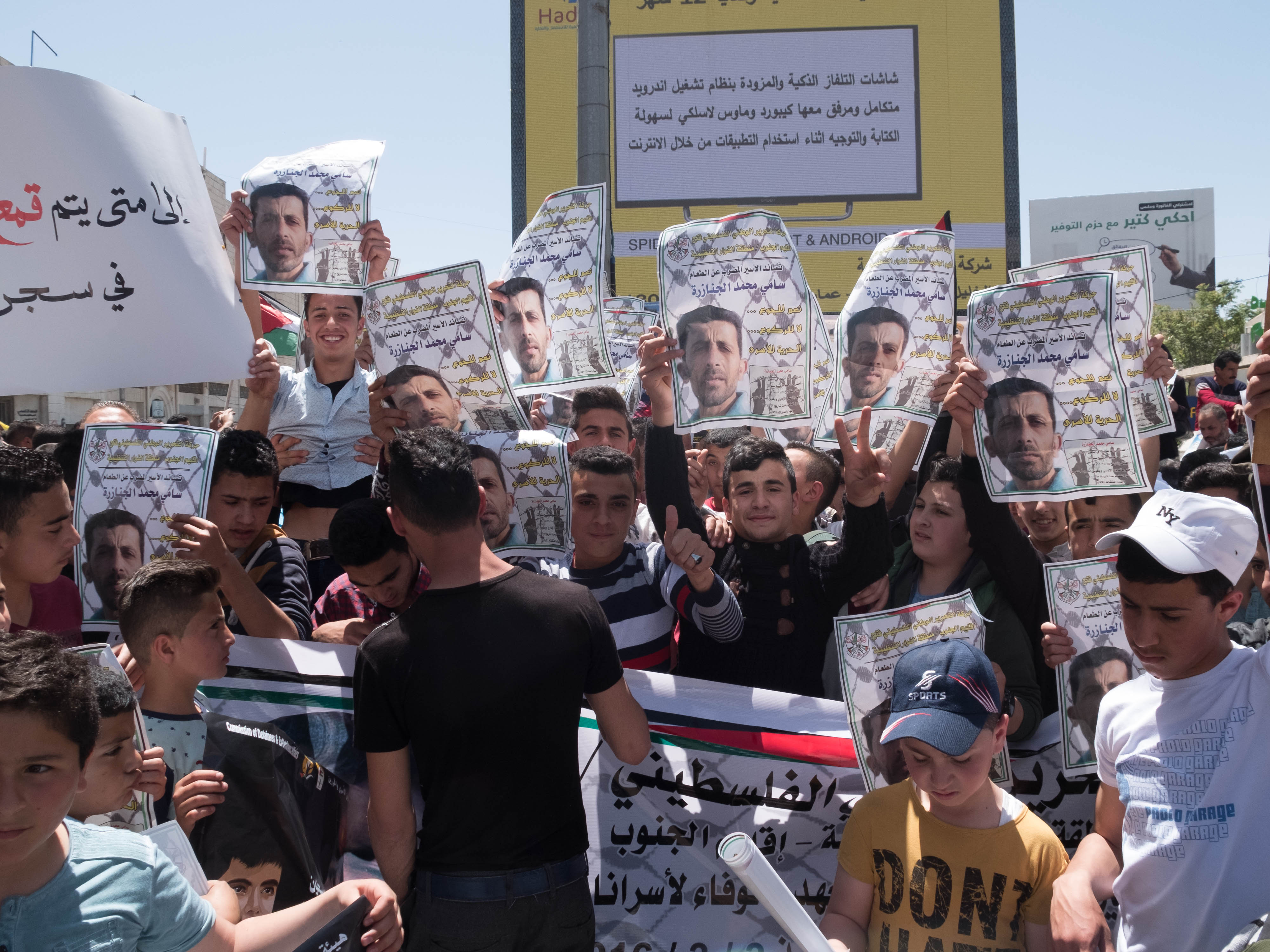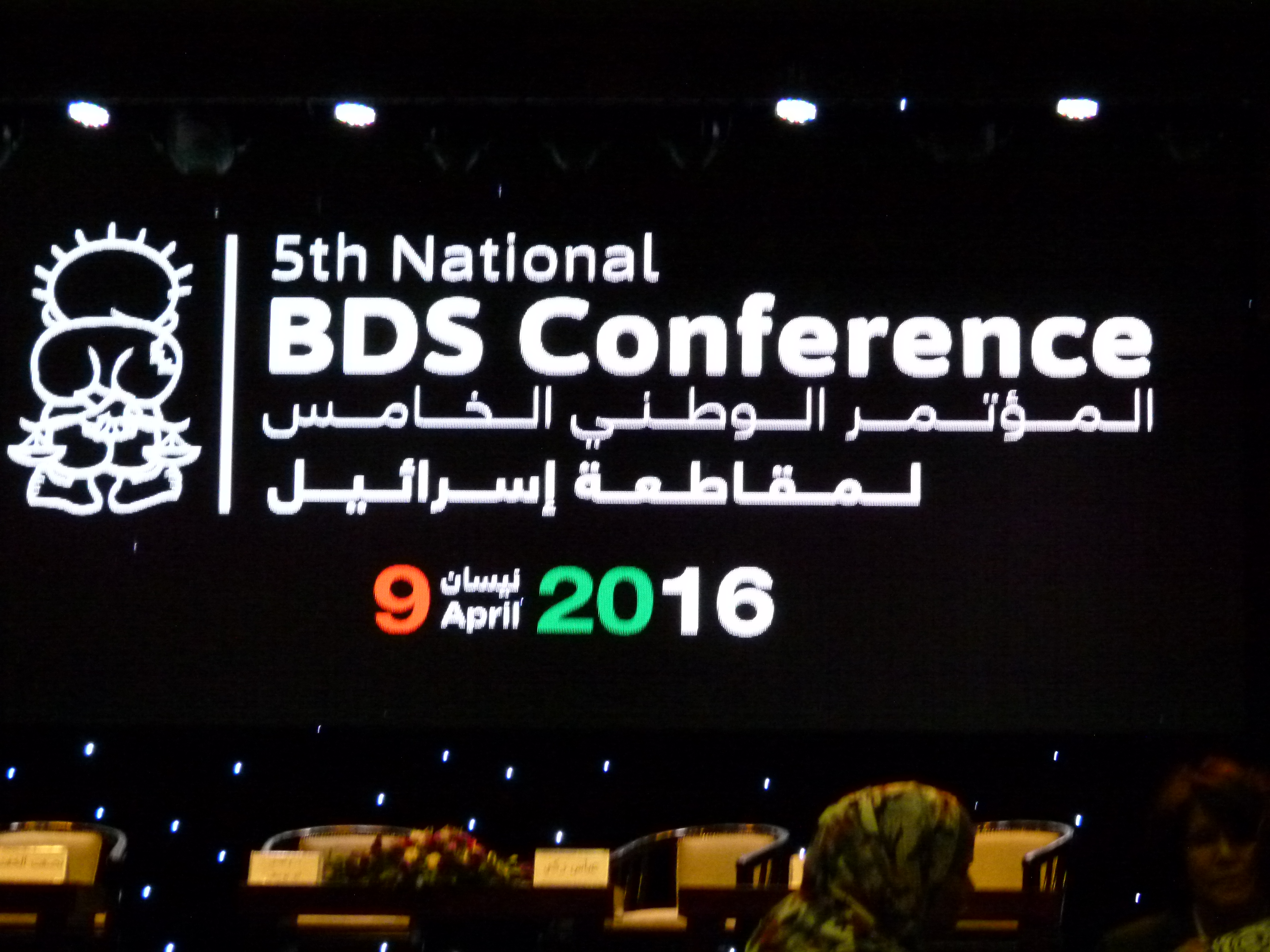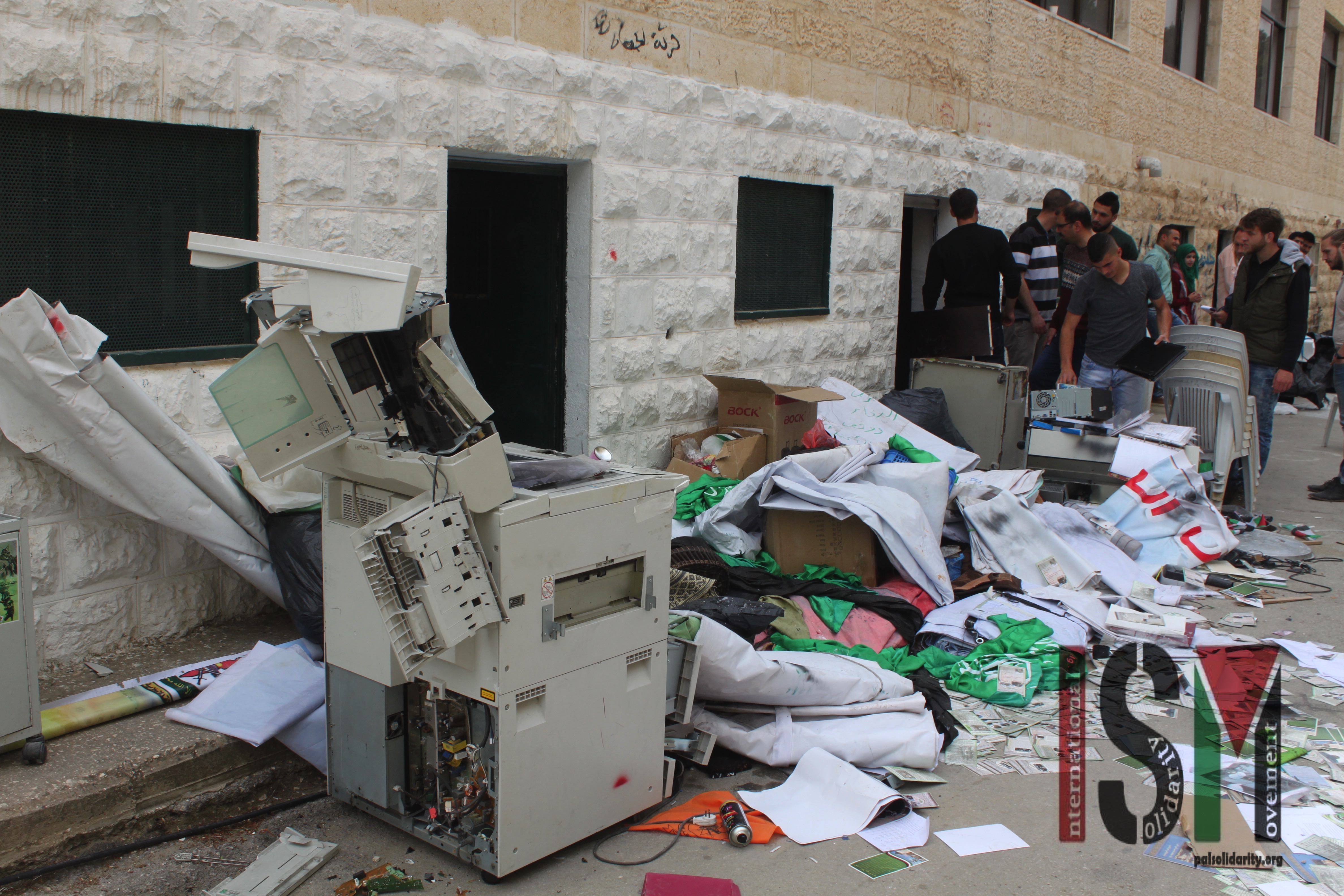Tag: Apartheid
-
Sami Janazreh enters 46th day of hunger strike
17th April 2016 | International Solidarity Movement, Al-Khalil Team | Hebron, occupied Palestine Today volunteers from ISM attended a demonstration in Al-Khalil for Prisoners’ Day. Once the main demonstration had ended in the city a group of young Palestinians invited the volunteers to the Fawwar refugee camp outside the city. At the camp they were…
-
5th Annual BDS Conference Held in Ramallah
9th of April 2016 | International Solidarity Movement, Ramallah team | West Bank, occupied Palestine Held on the 68th anniversary of the Deir-Yassin massacre, the fifth annual BDS (Boycott, Divestment, Sanction) Conference took place in Ramallah. The event featured a keynote address from Ahmed Kathrada – an icon of the South African Anti-Apartheid movement and…
-
University rooms destroyed in early morning raid by Israeli forces
5th of March 2016 | International Solidarity Movement, Ramallah team | East Jerusalem, occupied Palestine In the early hours of Tuesday, 5th April, around 3am, an armed group of Israeli soldiers stormed the campus of Al Quds university in the area of Abu Dis, part of East Jerusalem. The soldiers terrorised security guards on duty and forcefully…



